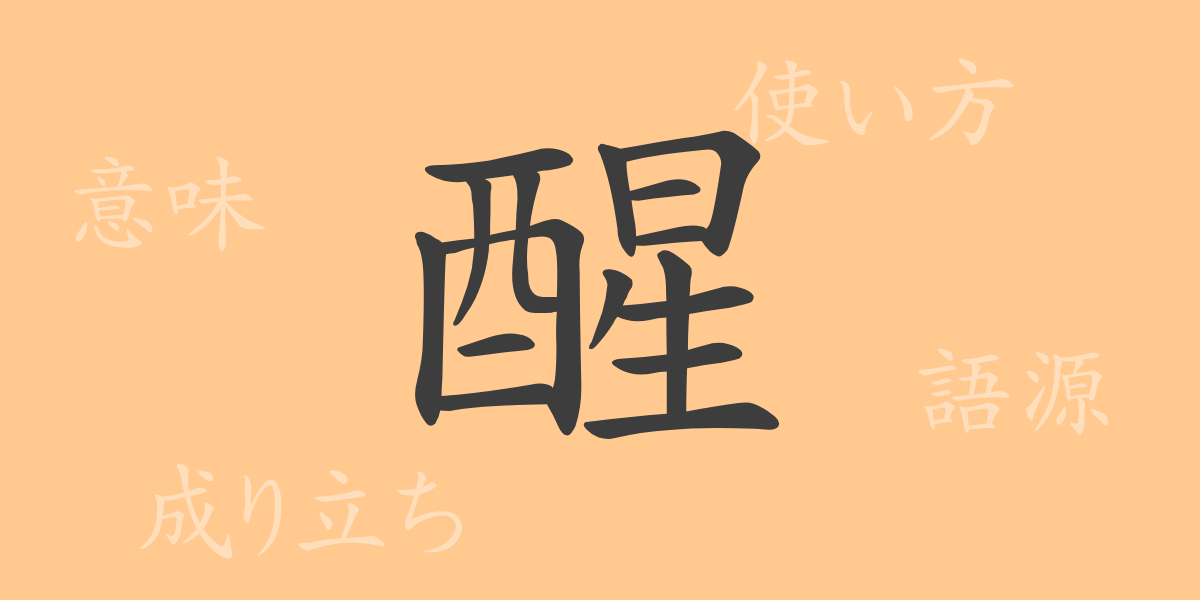Japanese language boasts a rich tapestry of characters, each imbued with profound meanings and historical significance. The kanji ‘醒’ (セイ, さめる) is deeply embedded in our daily lives, symbolizing mental awakening and awareness. This article delves into the etymology, contemporary usage, and the expressions and idioms of ‘醒’, enriching our understanding of this pivotal character.
Origins of 醒
The kanji ‘醒’ originated from ancient China, combining elements that symbolize speech and action. Initially depicted as ‘酉’ (the radical for alcohol) and ‘星’ (indicating spirit or mind), it represented the act of sobering up, evolving to signify mental awakening and enlightenment. Today, ‘醒’ embodies introspection and the discernment of truth, symbolizing the transformative processes within human consciousness.
Meaning and Usage of 醒
‘醒’ conveys meanings of awakening, realizing, and understanding. It is used in contexts such as a ‘醒めた見方’ (a sober, rational perspective) and in religious terminology to denote spiritual enlightenment. Thus, ‘醒’ plays a vital role in describing processes of personal and philosophical realization and growth.
Readings, Stroke Count, and Radical of 醒
The kanji ‘醒’ is fundamental in the Japanese lexicon, essential for understanding its literary and cultural applications.
- Readings: On’yomi ‘セイ’, Kun’yomi ‘さめる’.
- Stroke Count: ‘醒’ consists of 16 strokes.
- Radical: The radical for ‘醒’ is ‘酉’, associated with brewing and alcohol, reflecting its origins in concepts of purification and clarity.
Phrases and Idioms Using 醒
The kanji ‘醒’ is part of many expressions that reflect its profound implications in Japanese thought:
- 醒酒 (せいしゅ): Literally sobering up, used metaphorically to describe gaining clarity or becoming rational.
- 興醒まし(きょうざまし): To lose joy or interest. Also, something that does that, and the way it is.
- 夢醒め: Waking from a dream, often used to describe a return to reality or coming to an important realization.
Conclusion on 醒
The kanji ‘醒’ is a unique symbol of awakening and insight in the Japanese language, enriching our speech and thoughts with its layered meanings. Understanding ‘醒’ deepens our appreciation of Japanese linguistic and philosophical traditions, reminding us of the dynamic interplay between language and cognition. Through this exploration, we reconnect with the profound capabilities of ‘醒’ to transform our perception and engagement with the world.

























